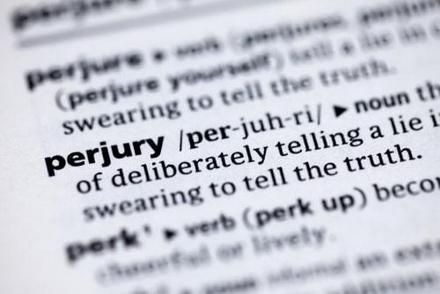TELEPHONES ANSWERED 24 HOURS A DAY
Recent Blog Posts
Can You Go to Federal Prison Just for Browsing the Dark Web?
 The dark web is often described as a dangerous place where anyone can get in serious trouble just for visiting. News stories and online discussions sometimes suggest that simply opening certain websites could lead to federal prison. That is not entirely true.
The dark web is often described as a dangerous place where anyone can get in serious trouble just for visiting. News stories and online discussions sometimes suggest that simply opening certain websites could lead to federal prison. That is not entirely true.
Browsing the dark web by itself is not automatically a crime, but what you do while there matters a great deal. If you have questions about internet crimes or are contacted by law enforcement, a Chicago, IL internet crimes defense lawyer can help explain the legal boundaries. As of 2025, federal agencies closely monitor online activity tied to serious crimes, adapting to the rapidly changing environment online.
What Is the Dark Web and Is It Illegal To Use It?
The dark web is a part of the internet that does not appear on normal search engines like Google. People usually need special software, such as the Tor browser, to access it. This is different from the deep web, which includes everyday private content like email accounts or online banking.
Can AI-Generated Content Be Considered Child Porn?
 Artificial intelligence (AI) is transforming not only the tech industry but the world as we know it. People use it to create images, videos, and more. It also helps power digital tools in healthcare, business, and education. As these tools become more advanced, new legal questions continue to arise. One of the most serious questions involves whether AI-generated sexual images of minors can be treated as child pornography under the law.
Artificial intelligence (AI) is transforming not only the tech industry but the world as we know it. People use it to create images, videos, and more. It also helps power digital tools in healthcare, business, and education. As these tools become more advanced, new legal questions continue to arise. One of the most serious questions involves whether AI-generated sexual images of minors can be treated as child pornography under the law.
This topic is important because child pornography charges carry some of the strictest penalties in the criminal justice system. Even when an image is created by software instead of a camera, legal consequences may still apply. If you are facing questions or concerns related to AI content, speaking with a Chicago, IL child pornography defense lawyer can help you better understand your rights and options.
What Happens if the Feds Accuse You of Mortgage Fraud in Illinois?
 A federal mortgage fraud investigation often begins with a letter, a phone call, or a request for financial records. The word fraud sounds alarming, but it does not always mean that you have done something wrong. Often, investigators are trying to understand whether certain transactions or statements meet legal requirements.
A federal mortgage fraud investigation often begins with a letter, a phone call, or a request for financial records. The word fraud sounds alarming, but it does not always mean that you have done something wrong. Often, investigators are trying to understand whether certain transactions or statements meet legal requirements.
If you or your business becomes part of a federal inquiry in Illinois, Law Offices of Hal M. Garfinkel LLC, Chicago Criminal Defense Attorney can help you understand the charges. Our Chicago, IL federal crimes defense lawyer can explain what federal agents are looking for, guide you through document requests, and protect your rights.
What Is Considered Mortgage Fraud Under Federal Law?
Mortgage fraud happens when someone gives false or misleading information during the mortgage process. When it is intentional, people usually do this to get a loan, a lower interest rate, or a financial benefit that they might not qualify for otherwise.
What to Know About Perjury and Lying Under Oath
 Many of us may have heard of the terms "lying under oath" and "perjury" on TV or in movies. However, not everyone understands what these terms mean in real life. Perjury is not only against the law. It can also be considered a federal crime. Lying under oath is strictly prohibited by federal statutes. If someone is accused of lying under oath or another federal offense, a strong legal defense may be important to protect their rights and work toward a fair outcome. Speaking with an experienced Chicago, IL criminal defense lawyer is the first step to understanding how to navigate this kind of case.
Many of us may have heard of the terms "lying under oath" and "perjury" on TV or in movies. However, not everyone understands what these terms mean in real life. Perjury is not only against the law. It can also be considered a federal crime. Lying under oath is strictly prohibited by federal statutes. If someone is accused of lying under oath or another federal offense, a strong legal defense may be important to protect their rights and work toward a fair outcome. Speaking with an experienced Chicago, IL criminal defense lawyer is the first step to understanding how to navigate this kind of case.
How Does Federal Law Define Lying Under Oath?
An oath is a formal promise to tell the truth. A person may be placed under oath in a courtroom, during a deposition, or when signing a document that requires truthful information. Once they are under oath, the law requires the statements they make to be truthful. If false information is given on purpose, the situation may be considered perjury.
Can You Be Charged with Federal Identity Theft Without Stealing Money?
 Identity theft is much more than stealing credit cards or draining a bank account. Under federal law, what matters is whether someone’s personal information was used without legal authority. If you have been accused of this type of crime, a Chicago, IL federal identity theft defense lawyer can explain your rights and help you build a defense.
Identity theft is much more than stealing credit cards or draining a bank account. Under federal law, what matters is whether someone’s personal information was used without legal authority. If you have been accused of this type of crime, a Chicago, IL federal identity theft defense lawyer can explain your rights and help you build a defense.
What Is Federal Identity Theft Under U.S. Law?
Federal identity theft laws differ from state laws in how and where they apply. Federal cases often involve conduct that crosses state lines or affects federal programs like Social Security, Medicare, or immigration. State identity theft laws, like those in Illinois, typically apply when the misuse happens within the state or targets individuals or businesses located there.
The actual federal statute is fairly vague. Under 18 U.S.C. § 1028, it is a crime to "knowingly transfer, possess, or use" another person’s identification with intent to commit an unlawful act. That includes using someone else’s name, Social Security number, or driver’s license for something illegal. The word "knowingly" is important. Prosecutors must prove you were aware the information belonged to someone else and that you used it on purpose, not by mistake.
When Is Murder a Federal Crime?
 Murder is often a crime that is prosecuted in the state judicial system, penalized with state sentences. However, in certain circumstances, murder can cross into federal jurisdiction. Consider the factors that make murder a federal crime and the legal implications. Then, contact a Chicago, IL federal murder defense lawyer who understands the laws that apply to these cases. Federal cases move quickly, and the penalties are severe. With experienced legal representation, you can fight the charges.
Murder is often a crime that is prosecuted in the state judicial system, penalized with state sentences. However, in certain circumstances, murder can cross into federal jurisdiction. Consider the factors that make murder a federal crime and the legal implications. Then, contact a Chicago, IL federal murder defense lawyer who understands the laws that apply to these cases. Federal cases move quickly, and the penalties are severe. With experienced legal representation, you can fight the charges.
What Makes a Murder a Federal Case?
Under federal statutes 18 U.S.C. § 1111, murder is defined as the unlawful killing of another person with intent or extreme disregard for life. In general, murder becomes a federal crime when it violates a law of the United States or takes place under federal authority.
How Do Federal Agents Build a Conspiracy Case Against You?
 A federal conspiracy charge is a serious offense. You do not have to commit the crime itself to face punishment. If the government believes you agreed with others to break the law, you could be charged. These charges often come with harsh penalties, such as years in prison and significant fines, and the impact on your criminal record can bleed into every aspect of your life. Federal agents use tools like surveillance, informants, and financial records to try to prove their case. If you are under investigation, hiring an experienced Chicago, IL federal conspiracy defense lawyer is the first step in challenging the evidence and the allegations.
A federal conspiracy charge is a serious offense. You do not have to commit the crime itself to face punishment. If the government believes you agreed with others to break the law, you could be charged. These charges often come with harsh penalties, such as years in prison and significant fines, and the impact on your criminal record can bleed into every aspect of your life. Federal agents use tools like surveillance, informants, and financial records to try to prove their case. If you are under investigation, hiring an experienced Chicago, IL federal conspiracy defense lawyer is the first step in challenging the evidence and the allegations.
What Is a Federal Conspiracy Charge?
In general, a conspiracy is an agreement between two or more people to commit a crime. Even if the crime itself never happens, the agreement and any step taken toward carrying it out can still lead to charges.
What Is Structuring and What Are Its Penalties?
 Structuring is the act of breaking down large cash transactions into smaller amounts to avoid bank reporting requirements, and it is treated as a serious federal crime. Even people handling lawful funds can face harsh penalties if they attempt to sidestep financial disclosure rules.
Structuring is the act of breaking down large cash transactions into smaller amounts to avoid bank reporting requirements, and it is treated as a serious federal crime. Even people handling lawful funds can face harsh penalties if they attempt to sidestep financial disclosure rules.
The government views this conduct as an intentional effort to conceal transactions, and federal agencies devote significant resources to identifying and prosecuting these cases. If you are under investigation, a Chicago, IL federal crimes defense lawyer can help you understand your rights and build a strong strategy to protect your future.
How Does Federal Law Address Structuring?
Under 31 U.S.C. § 5313, the Bank Secrecy Act, financial institutions must file a Currency Transaction Report (CTR) for cash transactions of more than $10,000 in one business day. To avoid this scrutiny, some individuals deliberately break down deposits or withdrawals into amounts just under the $10,000 threshold. This is called structuring, and it is a standalone federal crime under 31 U.S.C. § 5324.
Is a Federal Weapons Charge Automatic Prison Time?
 If you are accused of violating federal gun laws, you may be subject to significant consequences that can affect your future. Federal gun crimes are prosecuted by federal agencies like the Bureau of Alcohol, Tobacco, Firearms and Explosives (ATF). These charges are often associated with long prison terms and mandatory minimum penalties. It is essential to understand the nature of the charges, the potential penalties, and the defenses available to you. A Chicago, IL gun crimes defense attorney can help you understand your rights.
If you are accused of violating federal gun laws, you may be subject to significant consequences that can affect your future. Federal gun crimes are prosecuted by federal agencies like the Bureau of Alcohol, Tobacco, Firearms and Explosives (ATF). These charges are often associated with long prison terms and mandatory minimum penalties. It is essential to understand the nature of the charges, the potential penalties, and the defenses available to you. A Chicago, IL gun crimes defense attorney can help you understand your rights.
Mandatory Minimum Penalties for Federal Firearms Offenses
Federal firearms offenses come with strict mandatory minimum sentences that can lead to severe consequences. These penalties depend on the nature of your charge and your criminal history. However, those convicted tend to face significant prison sentences. For example, under 18 U.S.C. § 924(c), if you are caught using or carrying a firearm during a crime of violence or drug trafficking, you will face a minimum prison sentence of five years.
Can the Feds Charge You for Posting Something Online?
 People have the right to express strong opinions or criticism online. However, that does not mean that every statement is shielded by free speech principles when it comes to federal criminal law. If you have been charged with a federal internet crime or think you may be under investigation for something you posted online, a Chicago, IL federal crimes defense attorney can help. These cases can be complicated, and fighting a federal agency requires an extensive understanding of the laws that apply.
People have the right to express strong opinions or criticism online. However, that does not mean that every statement is shielded by free speech principles when it comes to federal criminal law. If you have been charged with a federal internet crime or think you may be under investigation for something you posted online, a Chicago, IL federal crimes defense attorney can help. These cases can be complicated, and fighting a federal agency requires an extensive understanding of the laws that apply.
What Federal Laws Apply to Online Posts?
Federal law covers many types of online conduct that can lead to criminal charges if certain lines are crossed. Consider some examples of statutes that come into play when someone’s online posts spark federal interest:
-
Interstate threats and communications: Statute 18 U.S.C. § 875 criminalizes transmitting threats to kidnap or harm another person across state lines, including via online platforms. A single tweet, email, or post can qualify if it is deemed a "true threat." Convictions carry fines and potential prison time, depending on the severity.




